Howling Bird Press’s 2020 nonfiction prize-winning book, “Self, Divided,” by John Medeiros, made the “Lambda Literary Review” list for most anticipated books of February! Congratulations to our author and, of course, our student editors!
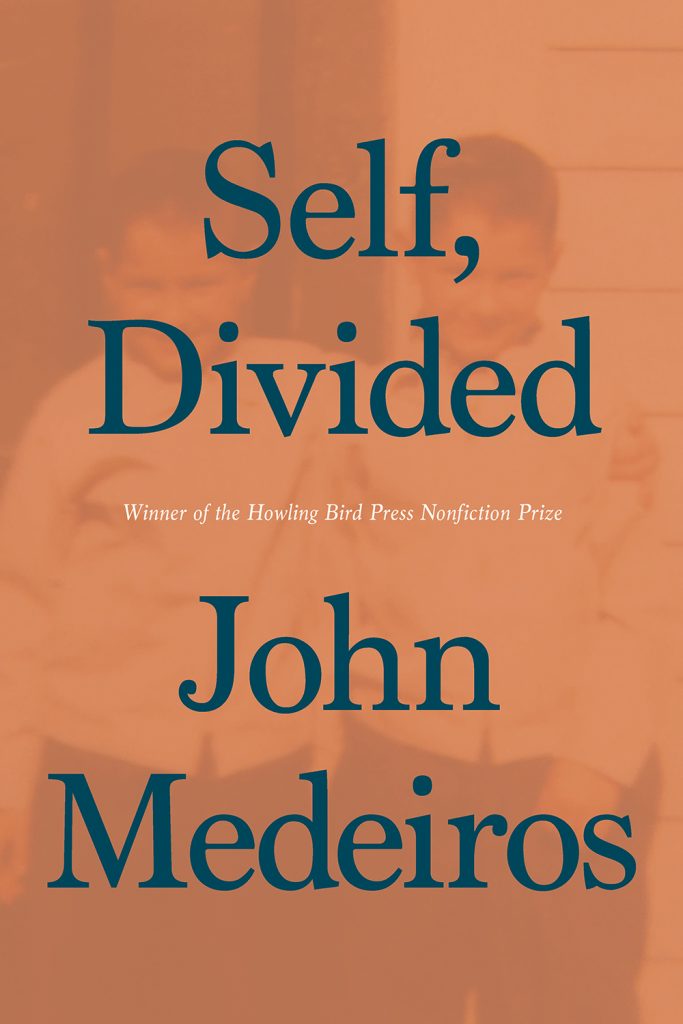

Howling Bird Press’s 2020 nonfiction prize-winning book, “Self, Divided,” by John Medeiros, made the “Lambda Literary Review” list for most anticipated books of February! Congratulations to our author and, of course, our student editors!

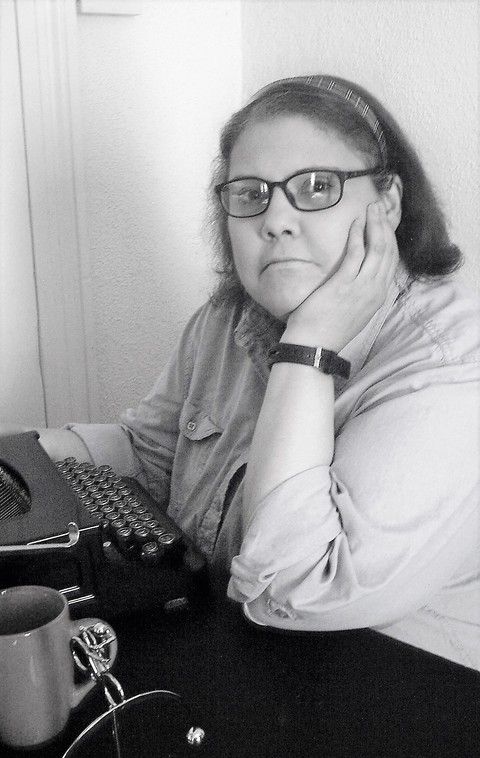
In the spring of 2020, Augsburg alumna Tracy Ross ’19 found out she won the Presidential Graduate Diversity Scholarship from Bowling Green State University. This merit-based award is given to a student who plans to promote diversity within the graduate student population at Bowling Green.
Tracy wanted to go to Bowling Green to earn her Ph.D. in Rhetoric and Writing. She heard it’s one of “the best hidden school in the country” from then MFA nonfiction mentor, Karen Babine. Tracy also has family who have attended Bowling Green. With the Presidential Graduate Diversity Scholarship, Tracy plans to combine her passion for poetry and community service to bring poetry to inner city youth and urban areas.
Tracy’s connection to diversity started as a young child and she believes her diverse background is what has helped her get to where she is today.
Originally from Detroit, Michigan, Tracy’s father is Black and her mother is European Caucasian. She attended school through her sophomore year of high school, then started her own path to higher education. Her father worked in the automotive industry and when economic hardship forced the automotive plants to close, Tracy’s family moved to Chicago so her parents could find work. Here, Tracy homeschooled herself. On her own, she learned what it would take to pass the equivalency test and she succeeded. With her GED, Tracy got herself into Roosevelt University in Chicago at an age when her peers were still in high school.
“Early on I realized that through my family’s economic hardship and inequalities, you can’t see the potential in yourself unless you see the potential in other people. I felt really blessed I have a diverse background, and that I was exposed not only to hardship, but I was blessed in having the fortitude and the privilege to be a thinking, aware human being,” Tracy says.
After earning her bachelor’s degree in English Literature, she went on to Bemidji State to earn a master’s degree in education. Tracy wanted to teach creative writing, but she realized that in order to teach creative writing at a post-secondary level, she would need a subject-specific degree. Tracy researched many universities and after reading Augsburg’s mission statement about its education to service, and seeing the diverse faculty in the MFA program, she decided the best fit would be Augsburg’s Master of Fine Arts in Creative Writing.
“Between the residency and the remote technology, that’s a big part of the incentive of going to Augsburg University. Especially in an MFA program, you have to work alone as a writer and [the program] gave me so much time to go back and forth between the mentorship and working alone. Augsburg was very progressive with that style of teaching,” Tracy says.
Tracy’s focus was on poetry and publishing. She considers herself blessed to have had the opportunity to work with four different MFA mentors: Cary Waterman, Heid E. Erdrich, Karen Babine, and James Cihlar. Tracy was also part of Augsburg’s Howling Bird Press the entire time she was in the program, until she graduated in 2019 with an MFA in Publishing.
“Augsburg University was the best experience in my life,” Tracy says. “I’m so grateful to Heid Erdrich for editing my thesis which I was able to publish.”
Tracy’s focus during the Spring 2021 semester will be on publishing her next book, as well as focusing on her research and dissertation for her Ph.D. work.
Tracy Ross is a poet, writer, and humanist. She holds a B.A. in English from Roosevelt University and a Master’s in Education. She is also a graduate of Augsburg University’s MFA Program. Her work is paramount in fusing poetic purist tradition with the modern technological progress and its influence on the mind. Her first collection of poetry, Broken Signals (Trials of Disconnect) is available from Shanti Arts Press. Her novella, Certainty of One–A Tale of Education Automation was released in November of 2018 by Adelaide Press. James Dean and the Beautiful Machine was just released in February 2020. She currently lives and works in Minnesota.
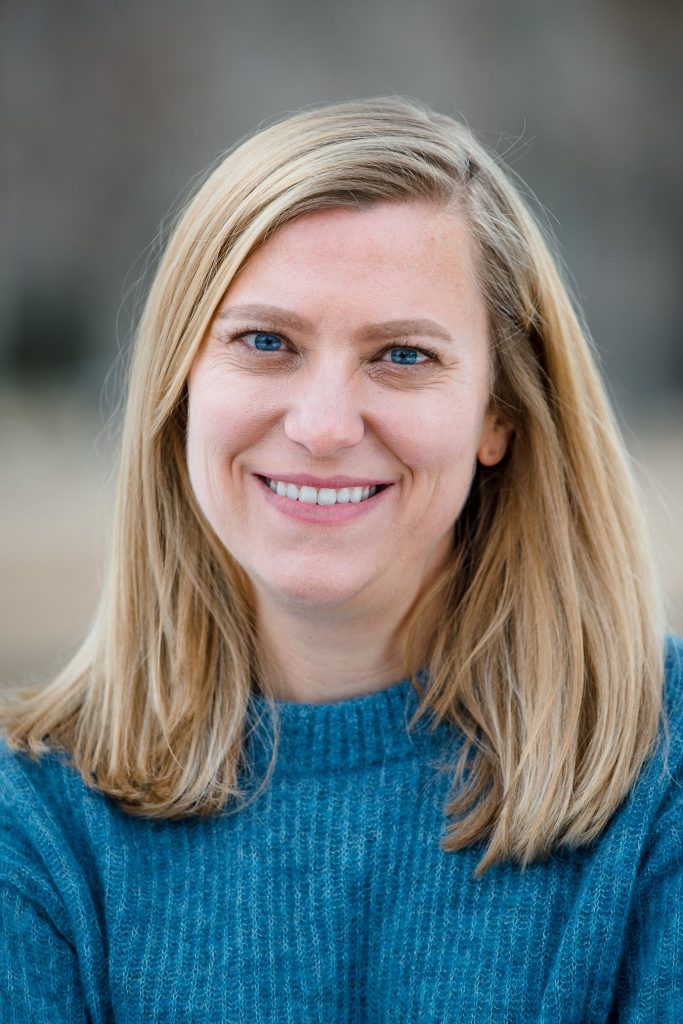
What is it about writing that energizes you?
I often say that I don’t like writing but I like having written. The actual writing is sometimes transcendent, sometimes painfully hard, and most of the time it’s just okay—like life, I suppose. But I just don’t feel right when I haven’t written. I am taken over by a general malaise. When I’ve written, I feel better. It’s the feeling of finally having your ears pop on the way down from the mountain after being at a higher altitude.
What are common traps for aspiring writers?
Well, I know one trap for me was thinking I had to make everything up. I thought that, in order for my writing to be worthy, everything in it had to be 100 percent invented, 100 percent original. I don’t believe that anymore. We just need to have an original voice. Basically, stop worrying so much about having something to say and figure out a way to say what you already know.
What is your writing Kryptonite?
Self-doubt. I can always think of a million reasons why my voice doesn’t matter. Ultimately, I have to do it for me and hope it matters to someone.
What other authors are you friends with, and how do they help you become a better writer?
Most of my author friends are people I met in my MFA program. Because we all came up in the program together and we’ve been pals for quite some time now, there’s no competition, just camaraderie. They are humans to me first, writers second. We exchange work but mostly we commiserate. The main thing I usually need is emotional support.
Do you want each of your books/stories to stand on their own, or are you trying to build a body of work with connections between them?
I’m trying to do both. I want each story to have its own legs, but I also want it to be able to get into that line and kick like the Rockettes along with all the other stories in my book. I’ve only written the one book, but I like to think that when I do have a body of work, all the books will echo off of each other.
Did publishing with Howling Bird Press change your process of writing?
I don’t think many writers get into the profession because they are really jazzed about marketing. Turns out writing a book and selling a book are two completely different animals. I am completely inept at the latter. And maybe the former, too, but shhhhhh. What publishing with Howling Bird Press taught me is that, although writing is, by nature, solitary, getting a book out into the world is very much a collaboration. I have depended so much on the expertise and hard work of the press. It’s such a relief to not have to go at it alone. It takes the pressure off and lets me focus on the actual writing.
What have you done since you won the Howling Bird Press prize?
Weathered a pandemic. Seriously, all of the events I had lined up were (rightly!) canceled. But that’s the case for every writer, every artist right now. It’s good, in a way. There’s only one thing to focus on: new work. And my day job. And taking care of two semi-feral kids.
As a writer, what would you choose as your mascot?
A house cat. Cats do not care what anyone thinks of them and they do what they want when they want. They start licking themselves in random places out of nowhere. They can be purring and rubbing up against your legs one minute and then clawing and biting your ankles the next. They cough up hairballs and don’t apologize! They find joy in the slightest wiggle of a string. They take lots of naps. And they are deeply weird.
How many unpublished and half-finished books/stories do you have?
Two half-finished books, I guess. But half-finished would be a generous assessment. One is a memoir and the other is a work of fiction. But lately, I’ve been sampling from one to use in the other, so maybe just one. Two disparate halves make a whole, right?
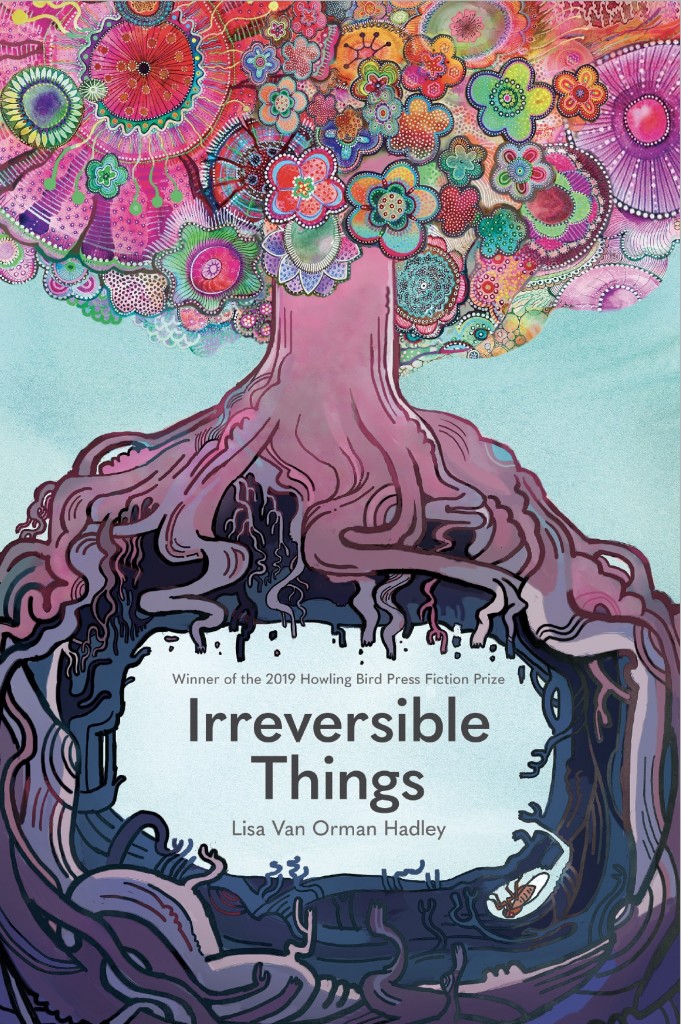
What kind of research do you do, and how long do you spend researching before beginning a book?
I mostly research random things that come up, like “What did the little adoption certificates that came with Cabbage Patch dolls say?” or “How would you drive to Graceland in the 1980s and how long would it take to get there?” I did a lot of research for the story “Irreversible Things”—which is based on a real murder that happened on the side of my house when I was seven—but I didn’t end up using much of it. Maybe a partial line from an article in the newspaper. The research was mostly because I wondered whether the way I remembered those events was accurate.
Do you read your book reviews? Why or why not?
I do because I can’t not look. I have to know what people are saying about me! I did have one friend forward me an email his mom wrote in response to my book and I gave it to another friend first so she could make sure there wasn’t anything in it that would break me (there wasn’t).
Do you hide any secrets in your books that only a few people will find?
Oh! I like this question. I guess the biggest secret of my book—the thing people are most curious about—is what is truth and what is fiction. Even my family members don’t always know the answer to that question. My lips are sealed.
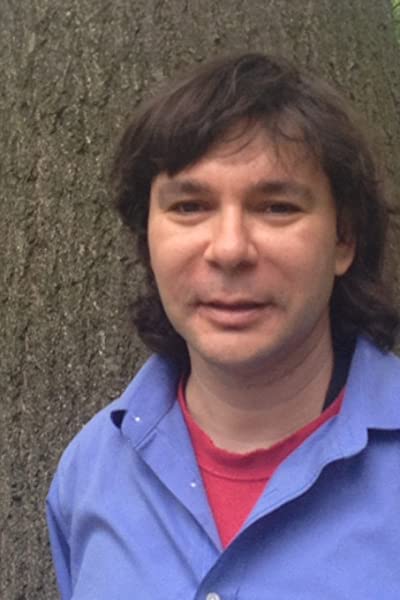
What is it about writing that energizes you?
Otherwise I might have to actually work for a living. Besides, I get to transform all of my enemies into characters they can’t recognize and then have them kidnapped by pirates or trampled by elephants.
What are common traps for aspiring writers?
Marriage. Children. Employment. The usual suspects. Alas, they’re generally unavoidable, so the trick is to write as quickly as possible until you find yourself with a mortgage and a golden retriever, and then to rest on your laurels.
What is your writing Kryptonite?
Death. That’s going to be a major distraction. Although my agent often tells me my balance sheet is more likely to reach the black posthumously. Pretty women are also a nice distraction, but as one gets older, death increasingly nudges them out of the picture.
What other authors are you friends with, and how do they help you become a better writer?
I dare not share their names because being known as a friend of mine might bring their literary careers to a grinding halt. I sometimes have that effect on people.
Do you want each of your books/stories to stand on their own, or are you trying to build a body of work with connections between them?
I am not nearly organized enough to be building a body of work. I just churn it out and hope some of it sticks. It helps that I have a team of elves and reindeer working alongside me.
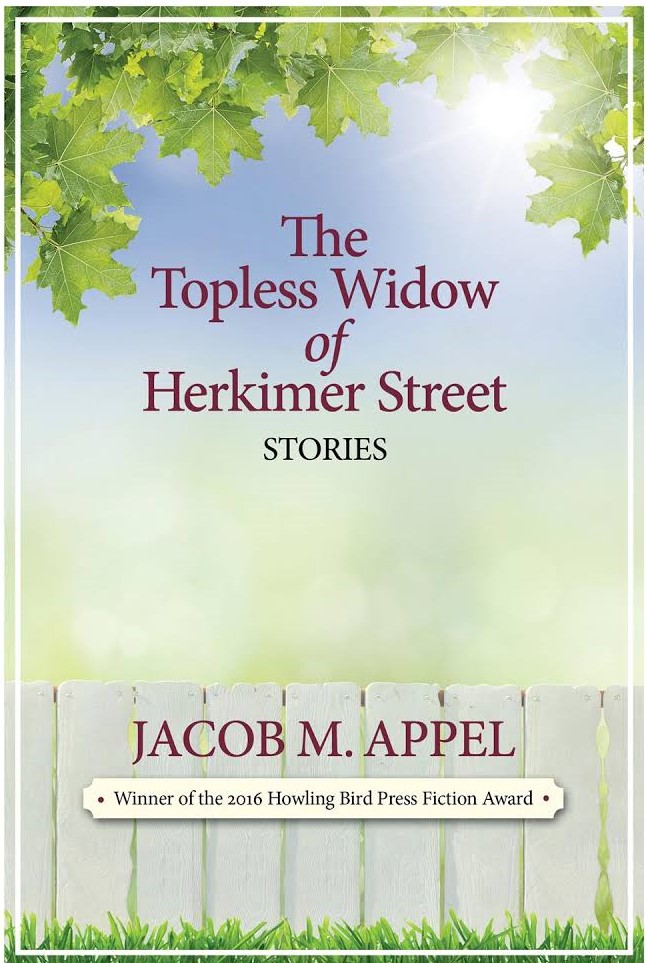
What have you done since you won the Howling Bird Press prize?
I have a new short story collection, Winter Honeymoon, coming out with Black Lawrence in 2020. I’ve published nine additional books—four more story collections, three novels, a collection of poetry, and, most recently, Who Says You’re Dead?, an ethics book for laypeople. It’s amazing how much writing one can accomplish when trying to overcome one’s deep-seated childhood fears of inadequacy.
What did you do with your first advance?
I made a down payment on a gumball. The great thing about New York City is you can even buy candy on layaway.
As a writer, what would you choose as your mascot?
Debra Winger. Especially if the honor comes along with a date. (Apologies to her husband, who I’m sure is a swell fellow, but this is my moment in the spotlight, not his.)
How many unpublished and half-finished books/stories do you have?
Hundreds of stories. Maybe thousands. And my editor has a brand-new novel on her desk, in case you know of a major publisher interested in making an offer. Okay, it’s not exactly new. But it was written this century, so it’s not that old . . .
What did you edit out of this book, The Topless Widow of Herkimer Street?
The original version contained the location of the Holy Grail and a translation key to the Rongorongo glyphs of Easter Island, but I’ve decided to save them for the sequel.
Do you read your book reviews? Why or why not?
You assume that my books get reviewed. To the limited extent that they do, I pretend that they don’t. But I always make a point of thanking the reviewers, if I can find their addresses. I suppose that means I am occasionally thanking a reviewer who has panned my book, but that probably makes them rethink their vitriol, so it is still energy well-spent.